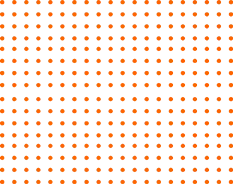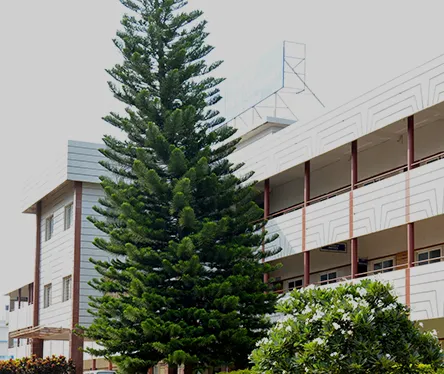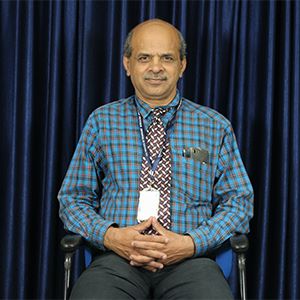

About R&D at RNSIT
In today’s University Research scenario, research integrates into ‘teaching and learning’ and one feeds into the other. It is extremely important for the faculty and the student community to explore ways of involving in research as an ongoing and sustainable pursuit. There is a need for universities to work aggressively on capacity building as an ongoing activity. The capacity building goes with skill development in chosen areas. Acquiring a sound knowledge base along with the relevant skills is the order of the day.
The capacity building gets strengthened with industry connect. The collaboration with industries will provide opportunities for faculty and students to work on industry defined problems which makes it current and of high utility value. The equally important aspect is the networking opportunities with practicing professionals with the industry collaboration.
With the above aspects in view, RNSIT has set up a research department ably advised and managed by the RNSIT Research Council. The research council has a composition of RNSIT research faculty from across domains. With the aim of defining newer initiatives and directions towards establishing a highly dynamic research ambiance on campus with well-defined outcomes, RNSIT Research Council has started the following initiatives:
- Undergraduate Research Forum: This is a forum mainly intended to provide a platform for UG students to passionately involve in research right from their first year of undergraduate studies. The management has provided funding for innovative projects, each supervised by a faculty member and a team of students to execute the projects
- RNSIT Seed Grant: This is a grant awarded to a faculty to carry out a focused research in his/her own chosen research area. The initial research findings and results are meant to aid the faculty to write a quality proposal to secure external grants. This will enable the faculty to submit high quality research funding proposals with a higher success rate.
- Creation of Domain Groups: Close to 20 domain groups have been created in focused domain areas. The domain groups consist of a domain coordinator, faculty members and a team of research focused students. The group meets periodically at regular intervals and carries out research activities leading to quality research publications, patents, prototypes and also involve in industry connect activities. The domain group acts as a knowledge hub to solve industry focused problems as well as problems of societal concern.
- Research Publications Incentives: This initiative by way of granting a cash reward, is to encourage and motivate faculty to publish quality research papers.
- Setting up of a MakerSpace Lab for students to carry out projects.
All the above initiatives are in addition to the already prevailing research culture where the faculty members will carry out their Ph.D under the supervision of the research faculty at RNSIT. As an ongoing activity, faculty members are motivated to publish in top ranking journals and conferences, to maintain high standards of publications, which gets global recognition.
The faculty team at RNSIT in collaboration with students and the industry partners, is geared up to take up challenging tasks and provide optimum solutions.
Message from Dean (R&D)
Research Council
| Sl.No. | Name and Designation | Role |
|---|---|---|
| 01 | Dr. Ramesh Babu H S PRINCIPAL |
Chairman |
| 02 | Dr. Srinivas A Professor, Dept of DS & Dean (R&D) |
Member |
| 03 | Dr. Kavi Mahesh Distinguished Professor of CSE and Advisor to RNSIT |
Mentor |
| 04 | Dr. Sumathi S Dean (Academics) |
Member |
| 05 | Dr. Kiran P Professor & HOD, CSE |
Member |
| 06 | Dr. Bhojanna U Dean , MBA |
Member |
| 07 | Dr. Suresh L Professor & HOD, ISE |
Member |
| 08 | Dr. Rajini V H Professor , ECE , IEEE coordinator |
Member |
| 09 | Dr. Jeevananda T Associate Prof & HOD , Chemistry |
Member |
| 10 | Dr. Chandrashekar T K Associate Prof, MECH |
Member |
| 11 | Dr. Prasanna IPC cell Coordinator |
Member Convener |
RNSIT DOMAIN GROUPS
The Teaching and Learning processes have been very well established at RNSIT and is obvious from the success stories of students in their careers. With this in place, it is extremely important for RNSIT to work towards capacity building in chosen domain areas. For higher levels of accomplishment, it is extremely important that the institute faculty develop expertize and work in a coordinated way in an inter-disciplinary manner. Towards this goal, RNSIT has constituted the Domain Groups. The composition of the domain groups is as follows:
The domain groups will function in the following manner:
- The domain team meets once in 2 or 3 weeks to discuss on the progress achieved in the preceding activity period (2/3 weeks). The minutes have to be ceremoniously recorded.
- Highly focused topics which have a research/industry focus are chosen and work is carried out in small teams on a regular basis
- The faculty members (including student members) work on the current algorithms, plan for improvements, newer designs, detailed implementation, simulations etc
- •he discussions should lead to newer ideas
- The work (interleaved with research meetings) will happen all through the year
- Writing proposals and carrying out internally funded projects
- Tangible outcomes expected are high quality papers, Domain expertise that will lead to industry collaboration, good material for writing grant proposals, patentable ideas, possibilities of securing external grants and execution of the projects from these grants.
- When an industry approaches for a collaborative work/consultancy, the request will be delegated to the respective domain group.
- At a later point when we make some strides, the domain group can come up with technical reports that are in practice in many research labs.
A List of Domains as is follows:
A. CSE and Allied Domains:
- Applied AI ( Artificial Intelligence, Machine Learning, Deep Learning)
- Data Science (Data Analytics, Big Data)
- Natural Language Processing
- Cyber Security (Computer Networks, Cryptography, Network Security)
- Quantum computing
- Internet of Things
- Algorithms and complexity
- Image & Video processing
- Virtual and Augmented Reality
- Agricultural Technologies
B. Electronics & Communication Domain
- Signal Processing
- Communication Systems
- VLSI
- Embedded Systems
- Photonics
C. Electrical Engineering
- Power System Analysis
- Power Electronics & Drives
D. Mechanical Engineering
- Energy-Electric Vehicles, Hybrid Electric Vehicles, Computational Fluid Dynamics
- Metal Science & Product Engineering
E. Physics
- Luminescence Studies
- Nano Composites
F. Chemistry
- Metal Oxide Nano Composites
- Bio-Inorganic Chemistry
G. Mathematics
- Mathematical Modeling
- Fluid Mechanics
H. Business Administration
- Social Science Research Social Science Research (Rural and Urban Development)
- Functional Research (Finance, HR, Marketing)

